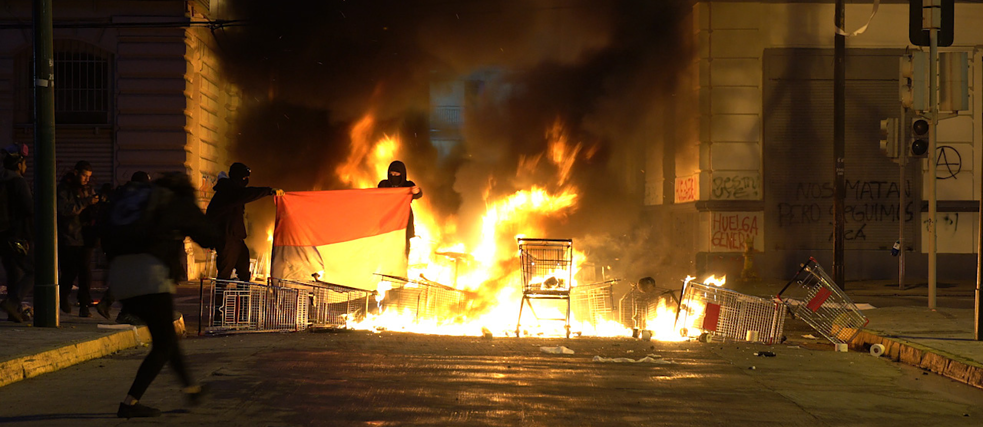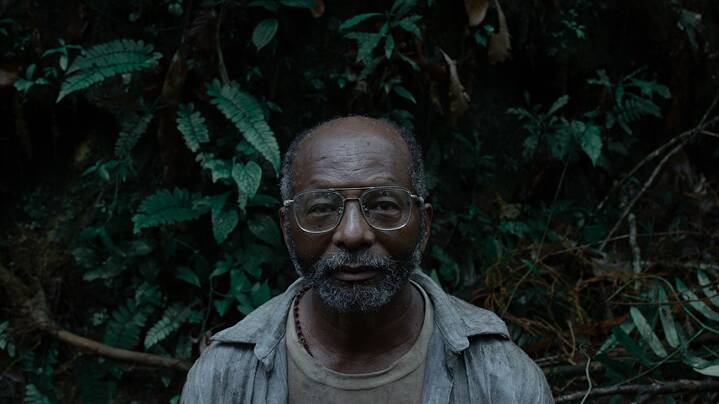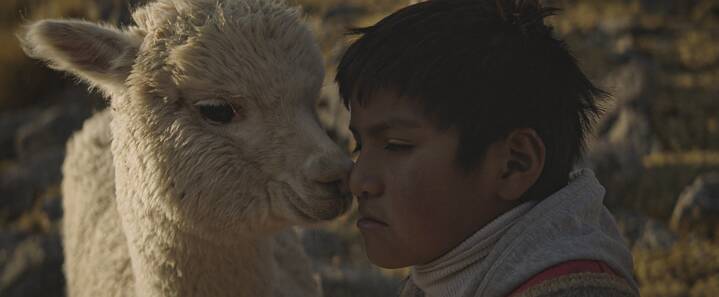Berlinale Bloggers 2024
South America in Berlin: challenges on the big screen

From remote communities in the Peruvian Andes or the Colombian Pacific coast to urban spaces in Santiago and Medellín: South American films at the Berlinale are focusing on the region’s urgent issues.
There’s a double whammy for the streets of Chile’s capital Santiago, which feature in two productions. Oasis by Tamara Uribe and Felipe Morgado follows the drafting process of a new Chilean constitution from the perspective of several filmmakers from the MAFI Collective (Mapa Fílmico de un País / Film Map of a Country). From the protests, which opened up an opportunity for change, to the conflict and negotiations over new laws, the film compares the demands of Chileans – for guarantees in the education sector, more rights for the indigenous population, environmental conservation, human rights – with the desire on the part of the conservative and neoliberal population groups for entitlement to their privileges. The new formulation of the constitution was already frustrating for forward-thinking people. Then on top of that the proposed changes were rejected by majority vote in a people’s referendum. The sense of utter defeat finds its perfect metaphor in one film scene, in which two helicopters attempt to put out a forest fire with buckets of water.
Love in a fragmented city
In another Chilean film Al sol, lejos del centro (Towards the Sun, Far From the Center) by Luciana Merino and Pascal Viveiros, showing in the Shorts category of the contest for the Golden Bear, two women in the largely deserted streets of Santiago’s suburbs are searching for their place in the sun and for love. Most of the camerawork is from a bird’s eye perspective, soaring through a labyrinth of urban fragments reminiscent of the novel Invisible Cities by Italo Calvino. By using sepia shots that have also been digitally edited to appear blurred, the film creates a nostalgic longing for something that has not yet happened.Forgotten desires
The Chilean-Colombian co-production La piel en primavera (Skin in Spring), the first feature film from Yennifer Uribe Alzate, is also set on the outskirts of a big city – this time in Medellín. Sandra, the main character, starts a job as a security guard in a shopping mall.
“La piel en primavera“ (Skin in spring). Colombia/Chile, 2024. Director: Yennifer Uribe Alzate. With Alba Liliana Agudelo Posada. Berlinale Forum 2024 | Photo (detail): © Monociclo Cine
On her daily commute to work she meets Javier, the bus driver. Their relationship as a couple, and her newly-formed friendships with the work colleagues, rekindle forgotten desires in Sandra. As a single mother with a young son, she always had to push these aside. The film follows Sandra on her journey to liberation and autonomy in a very sensitive approach that’s close-up and personal.
African rituals
Another storyline with a very intimate feel is Yo vi tras luces negras (I Saw Three Black Lights), a Colombian-Mexican-French-German coproduction directed by Santiago Lozano Álvarez in the Panorama section. The film is set in an Afro-descendent community in Aguaclara, a town in the middle of the jungle on the Columbian Pacific coast, and it tells the story of the final journey of a man named José de los Santos, who is looking for a place to die in peace.
“Yo vi tres luces negras“ (I saw three black lights). Colombia/Mexico/France/Germany 2024. Director: Santiago Lozano Álvarez. With Jesús María Mina. Berlinale, Panorama, 2024 | Photo (detail): © Christian Velasquez / Contravía Films
José de Los Santos is an expert in the mortuary rituals passed down from his ancestors, the descendants of enslaved Africans, and his day-to-day work involves looking after the corpses of young people who have lost their lives in the conflict between armed groups over illegal mining. When he heads into the jungle to find his ancestors’ territory and die there, José finds himself facing the violence and attacks of these armed gangs.
An unequal fight
Mining is also the background of the Chilean-Peruvian co-production by Franco García Becerra Raiz (Through Rocks and Clouds) in the Generation sidebar. The film is set in the Peruvian Andes and tells the story of eight-year-old Feliciano, whose dream is Peru qualifying for the FIFA World Cup.
„Raiz“ (Through rocks and clouds). Peru/Chile 2024. Regie: Franco García Becerra. Im Bild: Alberth Merma. Berlinale, Generation, 2024 | Foto (Detail): © Johan Carrasco
Feliciano tends alpacas in an idyllic landscape of mountains and lakes. However his lifestyle – along with that of his family and community – is threatened by a mining company tyrannising his village. When some alpacas, the sole source of income for many families, are killed, the town’s residents decide to unite and blockade the company’s access road. This increases the tension and exposes the danger of conflict between extremely unequal powers.